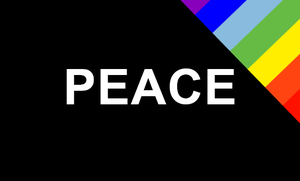War in Middle East: the appeal of the Conference of Italian University Rectors (CRUI) and the statement by Rector Giovanni Molari

At the assembly meeting on 19 October, the CRUI Rectors discussed the initiatives that universities have decided to launch in response to the conflict in the Middle East. At the end of the meeting, the CRUI member universities, in the face of the current tragic escalation of the conflicts, feel it their duty to send a warm message of reassurance and closeness to those students coming from war zones in Italian universities, as well as unwavering and profound solidarity to the students, lecturers, technical-administrative staff, and everyone involved in the crisis areas.
Universities also emphasise their fundamental role as places of encounter and dialogue between cultures as well as for the development of critical and rational thinking, fundamental tools for peace building in the Middle East and wherever the tragedy of the war unfolds.
In order to actualise this idea, the CRUI and the universities will display the flag of peace in mourning on their websites on 27 October. Throughout November, they will observe a minute of silence in memory of the victims of all conflicts at the beginning of academic body meetings.
"We are witnessing with growing anguish the escalation of the conflict", says Rector Giovanni Molari. "I am certain that I speak for the entire University when I say that our heartfelt thoughts go out to all the victims of this war, and the unanimous hope of our entire community is for peace, which can only be guaranteed through decisive diplomatic action by all the international bodies involved. In our University, there are students of Israeli citizenship who have been called up as reservists, and there are students of Palestinian nationality or origin who are anguished for their loved ones. To all of them, we have expressed and renewed our support. To individuals who have asked for our help or reassurance, we have tried to provide all possible assistance.
Another fundamental task that falls upon us as an institution is to provide everyone, starting with our students, with the cultural and scientific tools suitable for understanding this dramatic historical and political situation. Thousands of students, every day, are educated in critical thinking, which will enable them to form a comprehensive picture of this and other conflict situations and to develop a well-founded and adequately attentive personal opinion on the complexity of the matter.
For this reason, in a community that aims to foster critical debate among ideas, it is no surprise that diverse positions spontaneously emerge. In a University like ours, proud of its pluralism, it is not our role to adopt one view or another but to nurture a collective debate that contributes to a non-simplistic analysis of relevant and complex issues like this one. As long as such a debate takes place in mutual respect and begins with a firm condemnation of any violation of human rights.
We will continue to do this with conviction, reaffirming the principles of our Statute, which stem from the principles of the Italian Constitution. A Constitution that, as is well known, in Article 11 commits us to 'repudiate war as a means of settling international disputes'."






